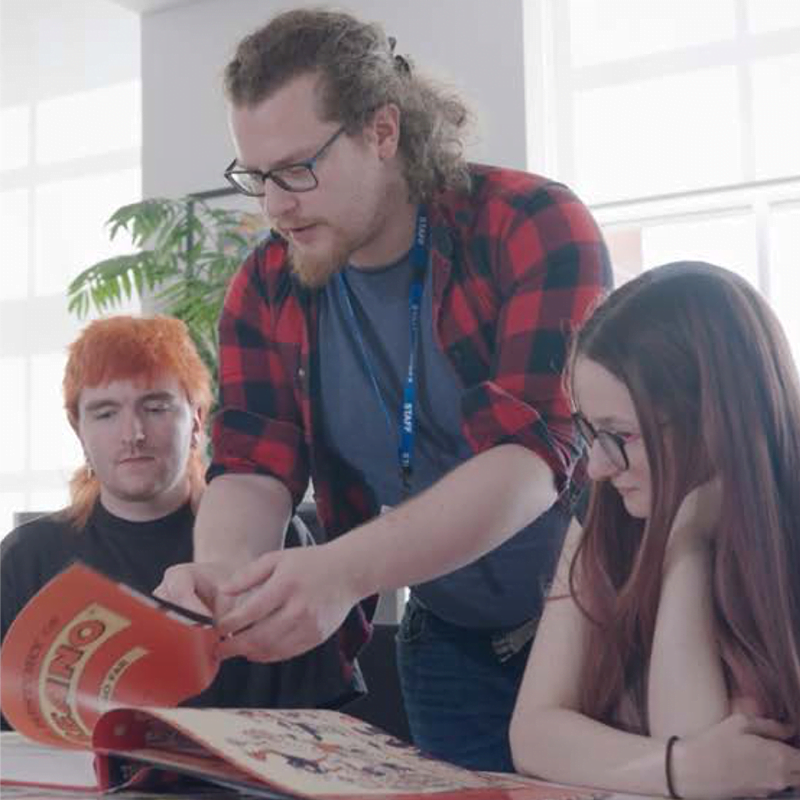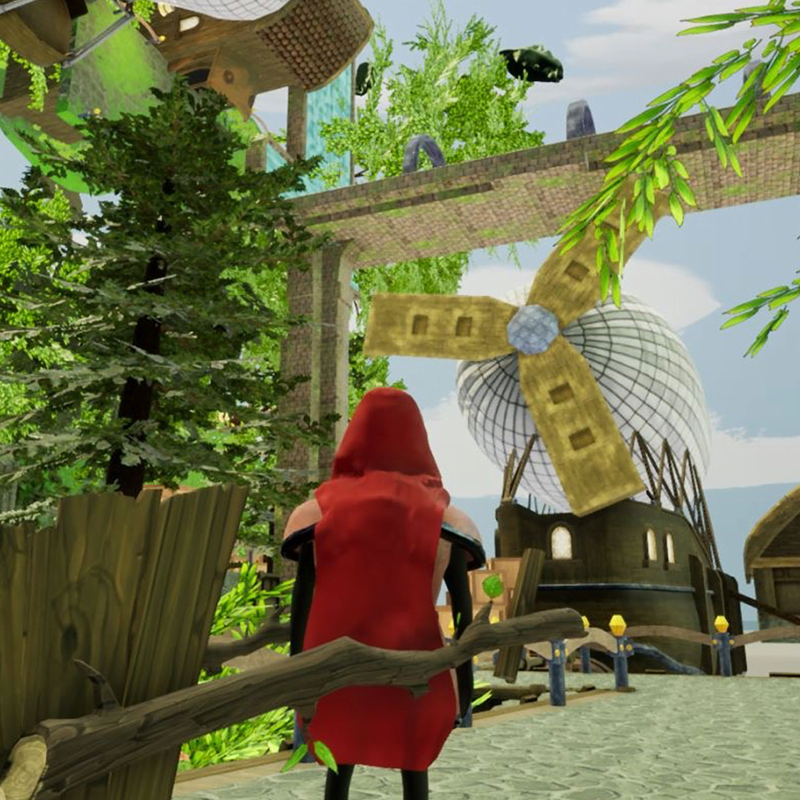
InGAME International is an Arts and Humanities Research Council (AHRC) funded research project led by Abertay University in partnership with Shanghai Academy of Social Science, Shanghai Theatre Academy, Communication University of Zhejiang, Outplay Entertainment, Beano Studios, Perfect World, and InGAME.
This three-year (2020-2023) project aims to identify opportunities for collaboration between the UK and China games industries, including sharing of knowledge, co-production, market access, and mutual sector growth.
Pathway to Collaboration
InGAME International has delivered a comprehensive report on the state of collaboration between the UK and China in the games industry. This Pathway to Collaboration is underpinned by interviews with experts across the UK, China and internationally, and provides recommendations for those in the UK looking to initiate relationships or considering routes to market in China.
Working with the games industry
InGAME International collaborated with games and games-related companies across the UK and China. R&D has involved prototyping and de-risking concepts or technologies with a view to entry into the China market, and supporting companies to navigate the complex regulatory, commercial and cultural landscape of UK-China collaboration.
One of our industry case studies featured collaboration with our partners Beano Studios and Outplay Entertainment.
Case studies
Our industry case studies provide an insight into co-production and collaboration across the UK and China games sectors. Click on the images below to access case studies of UK mobile games development for China markets and working with a Chinese publisher as a UK-based developer.
Research papers
In addition to case studies and demonstrators, the InGAME International team produced papers that addressed important research questions raised by our inquiry. Our two research papers are available open access via the links below.
Through the shanzhai lens: reframing the transmedial copying and remaking of games
China is one of the fastest growing games markets, housing not only some of the world’s largest video and computer games companies, but also millions of active gamers. From a Western perspective, engagement with China is considered essential to future growth for game developers and publishers, both in terms of inward investment from Chinese publishers and in growing sales with what will become one of the most important markets. However, Western perceptions of copyright, IP, and, copying of games in China can problematise game creators’ and consumers’ views of China. In this paper, we develop a framework for understanding the act of game copying in the West and in China that combines the Chinese concept of shanzhai with developing understandings of the concept “transmedia” and fan-created works. The aim of this framework is to introduce cultural and contextual awareness to our collective understanding of why game copies exist in the West and in China, and how they intersect with existing copyright and IP concerns. Through a case study of the 2018 game Among Us, we demonstrate that the reality of Western and Chinese game ‘copies’ is far more nuanced than is often depicted in Western media.
Transnational development cultures: navigating production, market, and cultural difference within European-Chinese game development teams
Discourse on the global games industry draws attention to the growth of China, in terms of both its consumer market and the games publishing landscape. Trade associations and government agencies have sought routes for Western games studios, publishers, and rights holders to connect with similar organisations in China. However, there has been limited focus on how Western and Chinese game developers understand and navigate the challenges of transnational collaboration and creativity in games production. This article presents a case study of five transnational game development teams, all of which were composed predominantly of developers from the UK and China who were tasked with producing game prototypes for both markets. Data gathered during game production included development diaries, interview data, game prototypes, and production documentation. Three themes emerged from analysis of the data: production practices and transnational working, navigating regulations and restrictions, and market and cultural differences. Findings highlight that developers encounter challenges around political and cultural difference that could inhibit production or lead to uncertainties in design decision making, but also that developers can quickly establish routes to collaboration and knowledge sharing that can help to overcome these barriers.
InGAME International in conversation
Throughout our programme of events, the InGAME International team has hosted a series of conversations with leading experts in the UK and China. In addition to our networking events, partner events, and investor forums, our partners at Ukie captured video conversations to share online.
The videos below document conversations hosted by our project collaborator Sam Collins. The first is a conversation with Lynn Yushan and Isabel Li from video game marketing company RS Listen, while the second video is a conversation with Glenn Wang of Curve Games.
Conferences
InGAME International hosted two, 2-day conferences.
The first was a fully virtual conference, with all presentations provided in advance as recorded videos. The Games In-Between China and the West conference has a dedicated web page where all speaker videos can be accessed.
Our second conference was a collaboration with Durham University. International Gaming: Laws and Regulations around Games in the Digital Era was a hybrid conference hosted by Durham Law School with virtual attendees from China and North America.
Click on the buttons below to access the full conference proceedings
Our team
InGAME International is home to a diverse, interdisciplinary team with an exclusive focus on UK-China collaboration and growth.

Dr. Robin Sloan
InGAME International Principal Investigator

Dr. Lynn Love
InGAME International Co-Investigator

Prof. Graham Johnson
InGAME International Co-Investigator

Martin Lynagh
InGAME International Co-Investigator

Dr. Hailey Austin
InGAME International Research Fellow

Hayley Brown
InGAME International Research Fellow

Dr Andrea McSwan
InGAME International Research Fellow

Xiaoxiong Xiong
InGAME International Research Assistant
Beatrix Livesey-stephens
InGAME International Research Assistant

Charly Harbord
InGAME International Project Coordinator
InGAME International industry project partners

Follow us Online









